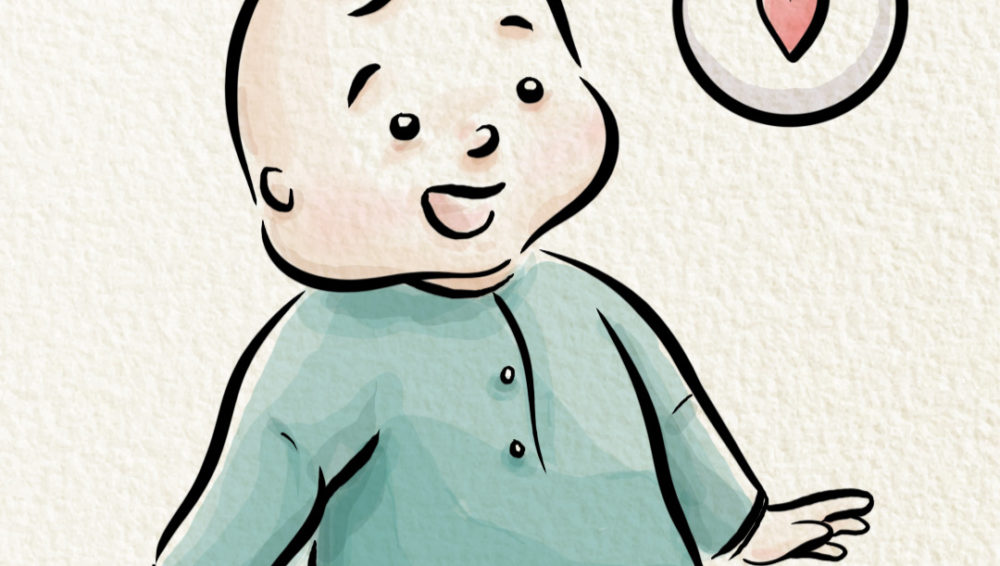Month 10: Language learning

Your Child’s ability to learn languages peaks around this month.
Creating an enriching environment with diverse phonetics and vocabulary helps your little one acquire language development more easily over the next few years.
How are you and your baby
The ability to use the thumb and index finger (pincer grasp) to pick up small objects may have started to develop, as Your Child continues to fine-tune motor skills. Some children may have started to pull to stand and cruise along with support.
As Your Child’s brain is priming itself for language acquisition, the little one may start to show recognition of basic words or phrases, like bye-bye, mama, come here, and no. More sophisticated forms of communication using many skills together, like pointing at a dog and saying puppy or waving and saying bye-bye, might not start now, but will soon become more frequent.
Although Your Child may not be able to say many words now, children this age can understand much more than they can verbally express. It is important that you start thinking about helping your little one develop an understanding of vocabulary by creating an environment in which the little one hears, sees, and is talked to often.
Understanding the language window
The period in which a human can acquire linguistic skills most effectively is called the language window, which mainly occurs during early life and peaks around 10 months. During this window of opportunity, an infant easily picks up sounds and learns languages. This does not mean that language can not be learned beyond this age. The language window offers an opportunity for parents and carers to tailor their environment and interaction with the child to best support language learning.
How to support language learning
Intentional communication: Children learn most effectively through face-to-face interactions with adults. When they are amassing their vocabulary, it is important to speak slowly and stress the words and let Your Child see the movement of your lips while talking, so the little one can catch the right sounds and syllables. If Your Child is playing or holding up an object, you can mention the name of the object to help the little one learn new words and understand its context.
Reading as routine: Making a habit of reading as part of daily routines — for example, before going to bed — is one great way to introduce new vocabulary to children. You can start with big visual books to introduce basic concepts like colors and animals. Then, as the little one gets older, you can use longer books with storylines to teach more advanced literacy skills.
Frequent talking and narrating: Another way to build rich vocabulary is by communicating needs and feelings, which also builds the foundation for good emotional and mental health. For example, describing basic feelings like anger, sadness, happiness, excitement while going through them teaches Your Child emotional literacy, which will be useful in the many years to come.
Why learning new languages now is important
The importance of language development is not just for communication but also for attaining optimal mental health and well-being in the future. Having the right words to convey their thoughts and feelings help children express and communicate better with others. Language skill is also important for successful collaborations, such as discussing and negotiating at school or home. Being able to understand others and letting others understand them can contribute to a happier life.
Verified:
Dr. Ketsupa Jirakarn (Mental health specialist) (18 February 2022)



